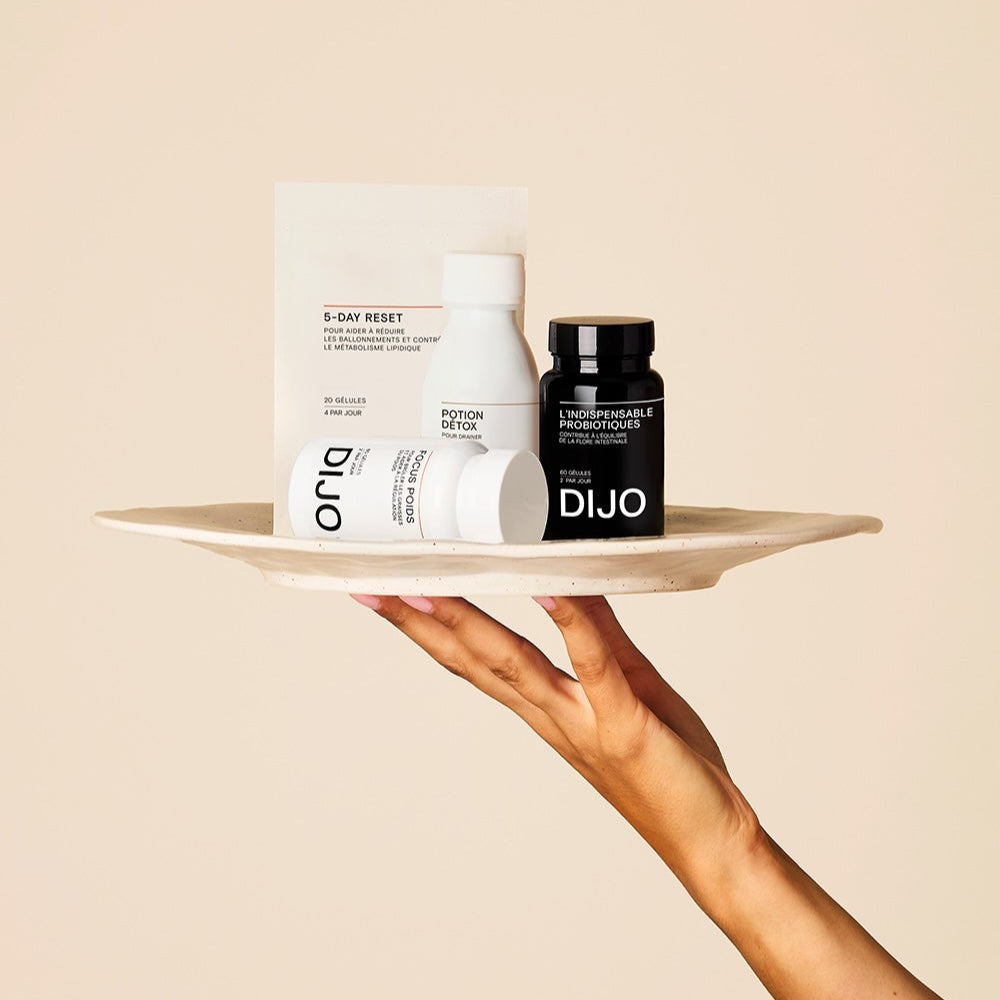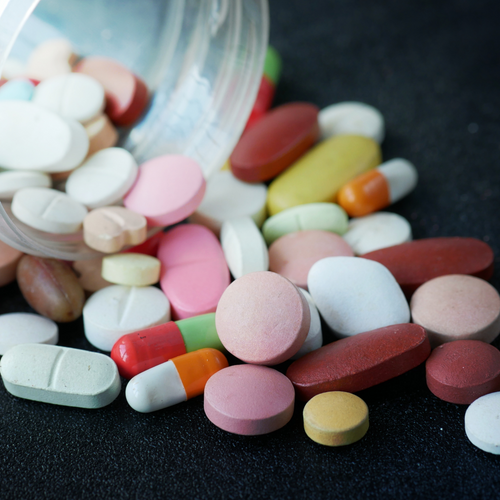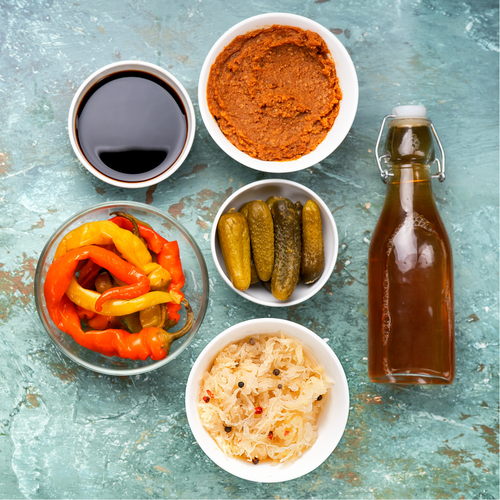Are you familiar with that feeling of bloating, a swollen stomach, and uncomfortable gas that can sometimes be accompanied by unexplained weight gain? We'll explore the causes behind these signs and provide you with solutions.
What causes a bloated stomach?
Diet and hydration
Diet is the most common factor in the onset of digestive problems, bloating or abdominal swelling . Indeed, if it is not suitable and too rich in fats, fermentable products, carbonated drinks, proteins, it can cause gas and therefore discomfort.
If you suffer from food intolerances, this can also cause your belly to bloat. These include lactose, gluten , and certain artificial sweeteners. Avoid these to reduce belly fat.
Finally, a lack of hydration can also be a factor. A lack of water intake can slow down digestive transit, which can lead to constipation and , as a result, increased gas production.
Sedentary lifestyle
Lack of physical activity leads to a lack of stimulation of the body's muscles, particularly those located in the intestine. This leads to a decrease in intestinal motility, the natural movement that allows the bolus to move forward throughout the digestive tract. In addition, it leads to an increase in food fermentation in the intestine due to stagnation.
An unbalanced microbiota
Bloating, recurring gas, abdominal pain, sudden weight gain, and sometimes even anxiety are telltale symptoms of an unbalanced microbiota. Gut dysbiosis refers to an imbalance in the ratio of good to bad bacteria. Consuming processed foods, pesticides, alcohol, and foods low in fiber, vitamins, and minerals are particularly harmful to these good bacteria and promote the growth of bad bacteria. However, our intestinal microbiota and the beneficial bacteria it contains, with probiotic effects , are not only essential for the proper functioning of our digestive system but also help break down food and regulate the feeling of hunger.
Stress
Did you know that the digestive system is very sensitive to stress? Indeed, there is a real axis of communication between the intestine and the brain. Under the effect of an excessive quantity of cortisol, more commonly known as the stress hormone , the neurons present in the intestines will modify the contractility of the intestinal muscles causing transit disorders, particularly bloating.
Why does weight gain accompany this bloating?
Bad eating habits
Eating a balanced diet is a good thing! But what's most important is the eating habits we adopt. Some people eat little but inexplicably gain weight. Several factors can be the cause, namely:
- Eating too quickly: Your meal should last at least 20 minutes! Taking time to chew also promotes the feeling of fullness.
- Undereating: Fasting or abstaining from food for too long can lead to overeating and, more importantly, fat storage. The body will go into survival mode, slowing down its energy metabolism and promoting fat storage.
- Also, try to set your meals at regular times. Avoid skipping meals, eating late, and snacking between meals!
Hormonal imbalances
Hormones play a crucial role in regulating various metabolic functions, including fat and sugar metabolism, appetite regulation, and fat distribution in the body. Thus, an upset in this hormonal balance can be caused by genetic or environmental factors and can contribute to sudden weight gain.
Water retention
Water retention refers to the accumulation of fluid in the space between cells when the body absorbs more water than it eliminates. This can lead to bloating of the abdomen, lower limbs, and a feeling of heaviness. However, this phenomenon does not necessarily imply body fat gain.
So if you are retaining water, don't panic if you see the number on the scale increase: it's a temporary phenomenon!
Stress
To combat episodes of intense stress, our bodies crave comfort foods, which are sweeter and fattier, with a higher calorie intake. In addition, the excessive release of cortisol increases appetite and promotes fat storage.
Our tips for quickly reducing belly fat
It is entirely possible to reduce your stomach fat, for example by adopting new habits on a daily basis.
Adapt your diet and hydration
Changing your diet to promote better digestive comfort is essential to combat bloating and a swollen stomach.
Indeed, it is important to favor lighter meals by avoiding meals too rich in fat and limiting the consumption of animal proteins, fermentable foods rich in FODMAPs and raw vegetables. For deeper and longer-lasting effects, it is also possible to consume foods rich in probiotics and good for your intestinal flora in order to balance it and promote better digestive transit.
Likewise, maintaining a proper hydration level with 1.5L of water per day helps strengthen the body's functions and support optimal intestinal transit. To vary the pleasures, it is possible to flavor your water (lemon, cucumber, strawberry, etc.) or drink tea, coffee and herbal tea in addition.
Opt for belly massage
Mechanically activating transit can also help combat swelling and bloating. Abdominal massages are therefore a real ally in achieving a flat and soothed stomach.
Practice physical activity
To combat weight gain and bloating, there's nothing like physical activity! Indeed, exercise has a thousand and one benefits for our bodies, particularly for our digestive system. Indeed, during physical activity, the increase in heart rate allows for a better supply of blood, and therefore oxygen, to the intestinal muscles.
Thus, regular exercise stimulates intestinal peristalsis, characterized by the set of muscle contractions that facilitate the movement of food through the digestive system. Indeed, the digestive stroll after a large meal is not a myth; it actually facilitates digestion.
Think about natural remedies
There are many natural solutions, which are not always miracle cures but which echo grandmother's remedies, and which can help reduce stomach aches and bloating.
Certain plants and spices have real benefits for digestive transit. Among them, we can cite carminative spices, such as caraway , cumin, fennel , ginger, peppermint, star anise, thyme, which help fight against the accumulation of gas.
In addition, infusions made from ginger, peppermint, chamomile or nettle can soothe this intestinal discomfort.




















